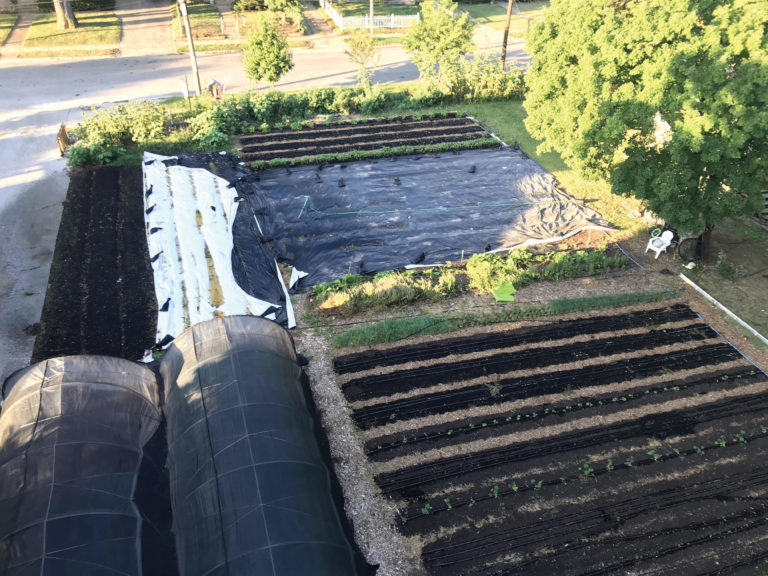"It would not be an overstatement to say this system is revolutionizing our operation."
Adam Millsap, Urban Roots Farm
THE CHALLENGE
When it comes to keeping their soils healthy and productive, most farmers willingly put in the work. For urban growers like Adam and Melissa Millsap, who operate Urban Roots Farm, an intensive production system on less than one acre near downtown Springfield, Mo., soil management can come with unique challenges. They say that trying to manage the nutrient cycle on their vegetable beds while maximizing crop outputs was a time-consuming job that led to degraded soil. Instead of letting crop residue decompose gradually on beds after harvest, they had to haul it off to compost piles and return with fresh compost so that they could quickly plant the next crop. They also relied on tillage to incorporate the compost and prepare seedbeds, which led to weed seed emergence, compaction and poor soil structure.
THE ACTIONS TAKEN

Interested in ways they could maintain sustainability while improving their efficiency, the Millsaps received a 2015 SARE Farmer/Rancher grant to try a completely new approach. They had read about it in a book, but nobody in their area was trying it. The first step after harvest is to pulverize crop residue with a flail mower and leave it on the bed. Then, cover the bed with an opaque plastic sheet for one to three weeks, which creates a warm, dark and moist environment. During this time, the residue decomposition speeds up and weed seeds germinate, then die due to a lack of light. Lastly, remove the sheet and plant the next crop.
During their SARE-funded project, the Millsaps compared this technique to their typical management over two years. They also used a reduced tillage technique on the test plot to prepare the bed for planting, which resulted in less soil disturbance.
THE IMPACTS
The new system was so successful that the Millsaps began using it on their entire farm, except for their control plot, before they had finished their two-year trial. The impacts include:
- Better soil structure: While the Millsaps did not observe a difference in organic matter, the new system greatly improved soil structure, allowing them to significantly cut back on pre-plant tillage.
- Reduced weed pressure: “The change was large in scale and almost immediate,” Adam Millsap says.
- Less labor: With less cultivation and no need for residue management, the new system reduced labor requirements.
- Productivity: Because of the reduced weed pressure and labor requirement, the Millsaps anticipate this system will allow them to have more beds in production at any given time. (Note: In late 2018 the Millsaps began working with a new venture in Arkansas that integrates agriculture into residential real estate development. They retain ownership of Urban Roots Farm.)
Visit the database of project reports to learn more about this SARE-funded project: FNC15-1006.
